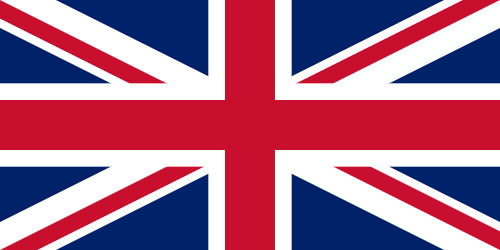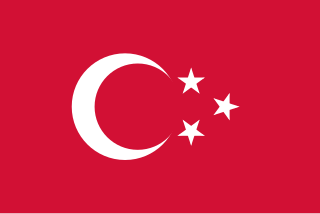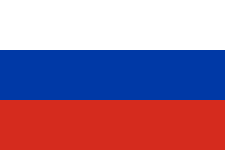Hello and welcome to World in Revolution: 1836 Mk. III. This game is a (somewhat) new entry in the series originally created by Frymonmon. Though it uses the timeframe from a previous WiR game (that never quite got off the ground), this isn’t a continuation, but instead something of a reboot. I’m etranger01 and I’m the Game Moderator for 1836 Mk. III, serving as both arbiter and final authority for all in-game actions, as well as maintaining and establishing the world in which you, the players, play your nations. Stormbringer will be assisting me as the resident stats guru; he’s in charge of all those complex number things that make the game run smoothly.
Nation Applications are: Open/CLOSED
12/12 Nations Selected
The premise of the game is fairly simple: You represent a nation in the year 1836, entrusted with the guidance of your state and its people through a period of incredible change and progress. In the coming year, Queen Victoria will inherit the throne of the United Kingdom of Great Britain and Ireland; historically, her leadership of the world’s largest empire left such a mark on world events that the period is now known as the Victorian era by many historians. However, as of January 1st, 1836, all bets are off, because while events will remain influenced by historical factors and forces, you and the decisions you make will be the single largest determinant of your country’s future direction. Will you take a great nation and steer it successfully through an era of unprecedented chaos and strife, or will you let it be engulfed by the rising tides of ideology and nationalism? Will you assume control of a lesser state and from humble beginnings achieve true global renown, or will you languish in obscurity and poverty? It’s all up to you and the fickle whims of Fate, as embodied by me.
Rules and Procedures
The game is broken up into turns, each representing a single year from January to December, starting with the year 1836. Between the end of one turn and the beginning of another, there will be a yearly update, which will cover the events of the previous turn, whether player-driven, historical, or GM-invented. During the course of the turn, there may also be periodic crisis updates, which cover new developments on the international scene. As GM, I will be responsible for producing both the yearly and crisis updates.
Between updates, players are encouraged to make in-character posts, representing either public announcements from their national government or events and historical entries from an academic perspective. These posts may also narrate events going on within your country that aren’t covered by the updates, but all narratives must be cleared with the GM before they’re posted. In-character posts, or IC, are crucial to ensuring that your nation’s positions are publicly known, and are increasingly crucial as you ascend in the national rankings. IC may have tangible effects depending on its quality and content, ranging from a change in public opinion to a one-turn bonus on an order relating to your IC.
I’ll keep the rules on player behavior to a minimum, beyond “don’t be a jerk,” but I do ask that all players keep the out-of-character chatter out of the thread if at all possible. Any questions, comments, or concerns should be sent to me either via forum PM or over PM on IRC. Any inter-player OOC should be conducted in PMs or on IRC. Do not notify me of a PM in-thread if I haven’t responded to it, do not air your issues with an update or a ruling in public, and keep things civil even outside the thread. I won’t hesitate to boot a player because they’re being disruptive, so keep that in mind.
Orders
Every turn, players will be required to submit a set of orders to me via forum private message, representing the primary events in their nation for the year. The number and type of orders permitted vary depending on the player’s nation, but should generally be a substantial paragraph including research and justification for whatever's being carried out. At present, there are only two types of orders, which will be enumerated below. Further order types may become available as the game progresses.
General Orders are the main type of order and can be used for virtually anything, but are generally allocated toward either improving the nation, addressing a national issue, or interacting with another nation. Increasing industrialization, improving trade, reforming the army or the navy, recruiting soldiers, building ships, laying down railroads, signing treaties, and expanding a colony are just a few of the possible uses for a General Order. If you’re not sure if your idea falls within the scope of a General Order, feel free to ask, but chances are that it does. General Orders can include actions performed by non-governmental sources or historical events that you want to have an in-game effect on your nation or its stats.
An example General Order from the United Kingdom in 1846:
“Repeal the Importation Act of 1815, also known as the Corn Laws, to remove trade barriers and permit the importation of cheap staple foods from foreign countries. This will stimulate trade and reduce food prices, encouraging a migration of workers from rural farms to urban factories.”
War Orders are limited-scope orders only available to nations that are in conflict with another nation or a rebel movement. They pertain to the various actions that can be taken while at war or dealing with conflict, such as the movement of soldiers or ships, the mobilization of reserves, and other military endeavors.
An example War Order from the Kingdom of Prussia in 1866:
“Following the victory at Gitschin, pursue the Austrian army further into northern Bohemia and concentrate all nearby forces on the area to force a decisive battle. Hit them from multiple sides with smaller individual forces and prevent them from concentrating at any one point.”
As in life, nothing in your orders is a sure thing, and the possibility of failure is very real. Two factors in your orders will play a role in mitigating the chance of failure: their possibility and their plausibility. When I get your orders, I will evaluate them to determine how possible and how plausible the order is given the resources of your nation, the national mood, and the context in which they’re presented. An order that lacks either plausibility or possibility is prone to failure, while orders that are both implausible and impossible may result in not just failure but backlash. If you’re concerned that an order is implausible or impossible, just ask, though bear in mind that I won’t pre-approve your entire set of orders or give you any indications on their actual chances of success or failure.
A Great Power is entitled to three General Orders and two War Orders, while a Secondary Power is entitled to two General Orders and one War Order.
Justifications
The Victorian Era is the Golden Age of Hypocrisy. There’s a lot of moralizing going on, both on a personal and national level, while actual morals are fairly scarce. Subjugation, persecution, violence, and greed are all rampant, concealed behind facades of perfect rectitude and upright behavior. Unlike later results-driven eras, the ends do not justify the means; the reality of what you’re doing is often secondary to the reason why you’re doing it and, perhaps more importantly, how it and you are perceived in the process.
Therefore, in 1836 Mk. II, I will be placing significant value on the justification provided for national actions, whether in the form of orders, diplomacy, or in-character statements. Justified orders, as enumerated previously regarding possibility and plausibility, have a much higher chance of success. An order that’s the subject of an in-character statement providing a socially acceptable and moral rationale for its existence is far more plausible than naked aggression or lust for power in the Victorian sensibility.
Additionally, I have implemented a Casus Belli system in 1836 Mk. II, representing the common Victorian belief that a conflict must be fully justified prior to being initiated and that a hallmark of civilized behavior is that of honorable conduct in all things. Prior to a nation’s initial declaration of war, it must possess a Casus Belli relevant to the country it is attacking, or else substantial penalties will be levied against that nation, representing outrage and dissent both inside and outside the government. A Casus Belli can either result naturally from events, whether from an update or another nation’s in-character statement, or it can be manufactured through an order or an in-character statement. In order to use a Casus Belli, there must be a formal and public in-character declaration of war against the appropriate party, citing the relevant grievances.
IRC Channel
The WiR community meets for OOC discussion on Internet Relay Chat, and there is quite a lot that goes on there, including informal negotiations and random chatting. Though all of the in-character business of the game should be conducted in the thread, the IRC channel is a great resource if you have questions, comments, or concerns. If I’m online, chances are that I’m on IRC, and I recommend that you join the channel to contact me or other players. It’s also a fun place to be!
Link: www.coldfront.net
Channel: #WiR_Main
Instructions:
1) Go to www.coldfront.net.
2) Choose the Flash app or the Java app.
3) Create a screen name; it’s recommended that you use your forum name, if available.
4) Close the #coldfront channel that opens automatically.
5) In the command box, type “/join #WiR_Main” without the quotation marks.
6) You’re in the chat! Welcome!
Nation Applications are: Open/CLOSED
12/12 Nations Selected
The premise of the game is fairly simple: You represent a nation in the year 1836, entrusted with the guidance of your state and its people through a period of incredible change and progress. In the coming year, Queen Victoria will inherit the throne of the United Kingdom of Great Britain and Ireland; historically, her leadership of the world’s largest empire left such a mark on world events that the period is now known as the Victorian era by many historians. However, as of January 1st, 1836, all bets are off, because while events will remain influenced by historical factors and forces, you and the decisions you make will be the single largest determinant of your country’s future direction. Will you take a great nation and steer it successfully through an era of unprecedented chaos and strife, or will you let it be engulfed by the rising tides of ideology and nationalism? Will you assume control of a lesser state and from humble beginnings achieve true global renown, or will you languish in obscurity and poverty? It’s all up to you and the fickle whims of Fate, as embodied by me.
Rules and Procedures
The game is broken up into turns, each representing a single year from January to December, starting with the year 1836. Between the end of one turn and the beginning of another, there will be a yearly update, which will cover the events of the previous turn, whether player-driven, historical, or GM-invented. During the course of the turn, there may also be periodic crisis updates, which cover new developments on the international scene. As GM, I will be responsible for producing both the yearly and crisis updates.
Between updates, players are encouraged to make in-character posts, representing either public announcements from their national government or events and historical entries from an academic perspective. These posts may also narrate events going on within your country that aren’t covered by the updates, but all narratives must be cleared with the GM before they’re posted. In-character posts, or IC, are crucial to ensuring that your nation’s positions are publicly known, and are increasingly crucial as you ascend in the national rankings. IC may have tangible effects depending on its quality and content, ranging from a change in public opinion to a one-turn bonus on an order relating to your IC.
I’ll keep the rules on player behavior to a minimum, beyond “don’t be a jerk,” but I do ask that all players keep the out-of-character chatter out of the thread if at all possible. Any questions, comments, or concerns should be sent to me either via forum PM or over PM on IRC. Any inter-player OOC should be conducted in PMs or on IRC. Do not notify me of a PM in-thread if I haven’t responded to it, do not air your issues with an update or a ruling in public, and keep things civil even outside the thread. I won’t hesitate to boot a player because they’re being disruptive, so keep that in mind.
Orders
Every turn, players will be required to submit a set of orders to me via forum private message, representing the primary events in their nation for the year. The number and type of orders permitted vary depending on the player’s nation, but should generally be a substantial paragraph including research and justification for whatever's being carried out. At present, there are only two types of orders, which will be enumerated below. Further order types may become available as the game progresses.
General Orders are the main type of order and can be used for virtually anything, but are generally allocated toward either improving the nation, addressing a national issue, or interacting with another nation. Increasing industrialization, improving trade, reforming the army or the navy, recruiting soldiers, building ships, laying down railroads, signing treaties, and expanding a colony are just a few of the possible uses for a General Order. If you’re not sure if your idea falls within the scope of a General Order, feel free to ask, but chances are that it does. General Orders can include actions performed by non-governmental sources or historical events that you want to have an in-game effect on your nation or its stats.
An example General Order from the United Kingdom in 1846:
“Repeal the Importation Act of 1815, also known as the Corn Laws, to remove trade barriers and permit the importation of cheap staple foods from foreign countries. This will stimulate trade and reduce food prices, encouraging a migration of workers from rural farms to urban factories.”
War Orders are limited-scope orders only available to nations that are in conflict with another nation or a rebel movement. They pertain to the various actions that can be taken while at war or dealing with conflict, such as the movement of soldiers or ships, the mobilization of reserves, and other military endeavors.
An example War Order from the Kingdom of Prussia in 1866:
“Following the victory at Gitschin, pursue the Austrian army further into northern Bohemia and concentrate all nearby forces on the area to force a decisive battle. Hit them from multiple sides with smaller individual forces and prevent them from concentrating at any one point.”
As in life, nothing in your orders is a sure thing, and the possibility of failure is very real. Two factors in your orders will play a role in mitigating the chance of failure: their possibility and their plausibility. When I get your orders, I will evaluate them to determine how possible and how plausible the order is given the resources of your nation, the national mood, and the context in which they’re presented. An order that lacks either plausibility or possibility is prone to failure, while orders that are both implausible and impossible may result in not just failure but backlash. If you’re concerned that an order is implausible or impossible, just ask, though bear in mind that I won’t pre-approve your entire set of orders or give you any indications on their actual chances of success or failure.
A Great Power is entitled to three General Orders and two War Orders, while a Secondary Power is entitled to two General Orders and one War Order.
Justifications
The Victorian Era is the Golden Age of Hypocrisy. There’s a lot of moralizing going on, both on a personal and national level, while actual morals are fairly scarce. Subjugation, persecution, violence, and greed are all rampant, concealed behind facades of perfect rectitude and upright behavior. Unlike later results-driven eras, the ends do not justify the means; the reality of what you’re doing is often secondary to the reason why you’re doing it and, perhaps more importantly, how it and you are perceived in the process.
Therefore, in 1836 Mk. II, I will be placing significant value on the justification provided for national actions, whether in the form of orders, diplomacy, or in-character statements. Justified orders, as enumerated previously regarding possibility and plausibility, have a much higher chance of success. An order that’s the subject of an in-character statement providing a socially acceptable and moral rationale for its existence is far more plausible than naked aggression or lust for power in the Victorian sensibility.
Additionally, I have implemented a Casus Belli system in 1836 Mk. II, representing the common Victorian belief that a conflict must be fully justified prior to being initiated and that a hallmark of civilized behavior is that of honorable conduct in all things. Prior to a nation’s initial declaration of war, it must possess a Casus Belli relevant to the country it is attacking, or else substantial penalties will be levied against that nation, representing outrage and dissent both inside and outside the government. A Casus Belli can either result naturally from events, whether from an update or another nation’s in-character statement, or it can be manufactured through an order or an in-character statement. In order to use a Casus Belli, there must be a formal and public in-character declaration of war against the appropriate party, citing the relevant grievances.
IRC Channel
The WiR community meets for OOC discussion on Internet Relay Chat, and there is quite a lot that goes on there, including informal negotiations and random chatting. Though all of the in-character business of the game should be conducted in the thread, the IRC channel is a great resource if you have questions, comments, or concerns. If I’m online, chances are that I’m on IRC, and I recommend that you join the channel to contact me or other players. It’s also a fun place to be!
Link: www.coldfront.net
Channel: #WiR_Main
Instructions:
1) Go to www.coldfront.net.
2) Choose the Flash app or the Java app.
3) Create a screen name; it’s recommended that you use your forum name, if available.
4) Close the #coldfront channel that opens automatically.
5) In the command box, type “/join #WiR_Main” without the quotation marks.
6) You’re in the chat! Welcome!
Last edited:















